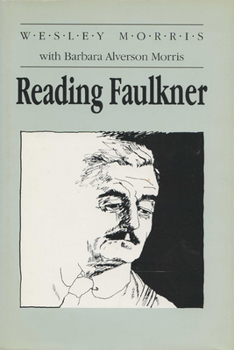Reading Faulkner (Wisconsin Project on American Writers)
The general argument advanced by the Morrises in this ambitious work revolves around the idea that William Faulkner is deeply critical of the prevailing Southern myth and discourse; furthermore, that his narratives are an attempt to discover and amplify alternative voices within that dominant milieu. Those voices and the stories they tell are most often those of the unprivileged in race, class, and gender--the black, the poor white, the woman, the neurotic, and so forth--who act out the disintegration of Southern culture even as they may be said to hold it together in a communal act of mythmaking. This "reading" thus makes the case (a largely revisionary one) for Faulkner as a fully engaged political writer, a writer embroiled in the process of the subversion and dissolution not only of dominant Southern myth, but of dominant Southern reality as well. Structured in the way Faulkner imagined his entire fictional universe--as a single narrative--Reading Faulkner's incremental design results in a "story" that has much of the drive and force of Faulkner's "story" itself.
Format:Hardcover
Language:English
ISBN:0299122204
ISBN13:9780299122201
Release Date:November 1989
Publisher:University of Wisconsin Press
Length:261 Pages
Weight:1.20 lbs.
Dimensions:9.5" x 1.0" x 6.5"
Customer Reviews
0 rating





